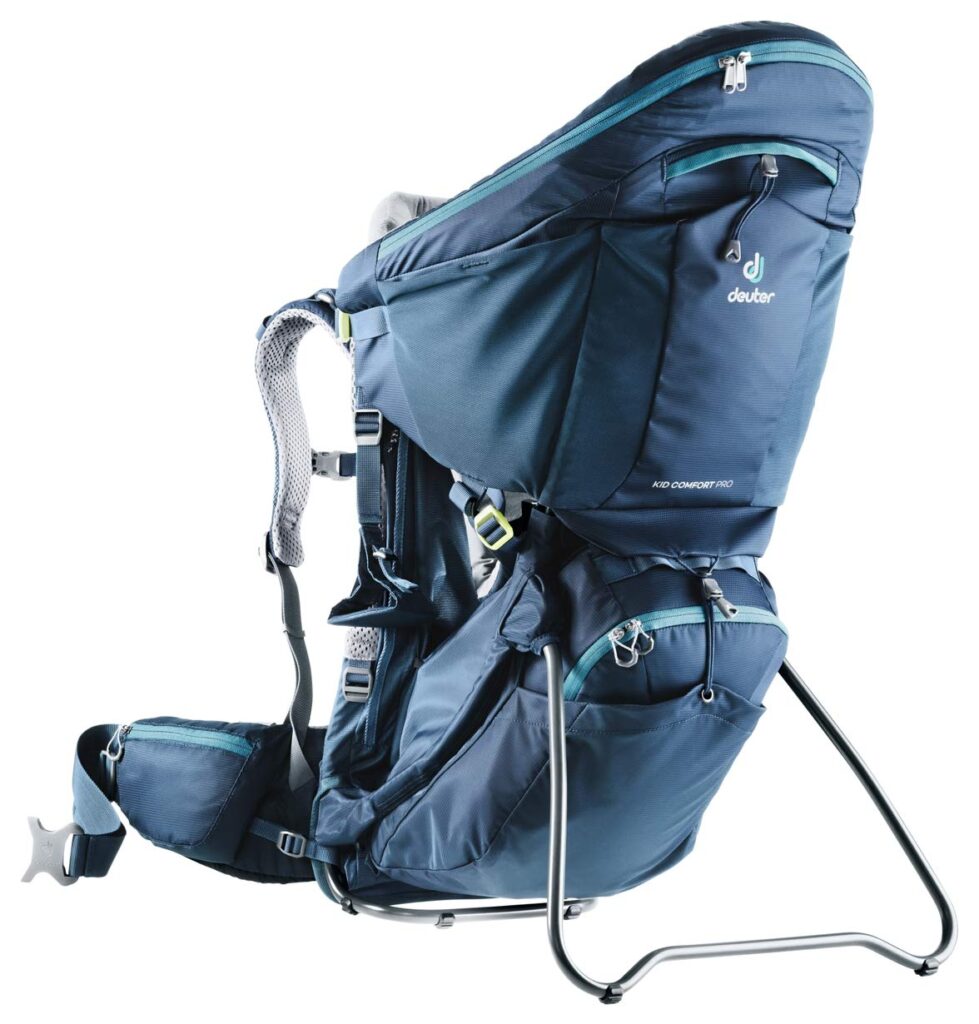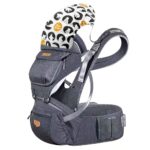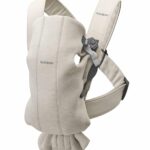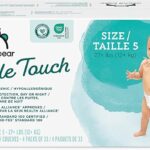Parenting is a joyful experience, but the physical demands it places on your body, especially your back, can be taxing. For parents who suffer from back pain, carrying a baby for long periods can be a daunting task. Thankfully, baby carriers designed with ergonomic support can alleviate back discomfort and allow you to carry your child with ease. Whether you’re a parent dealing with chronic back pain or simply looking to avoid strain during baby-carrying sessions, choosing the right baby carrier is crucial.
In this guide, we’ll explore the best baby carriers for back pain in 2024. We’ll discuss key features to look for, the various types of baby carriers, and the top models available on the market that prioritize back support.
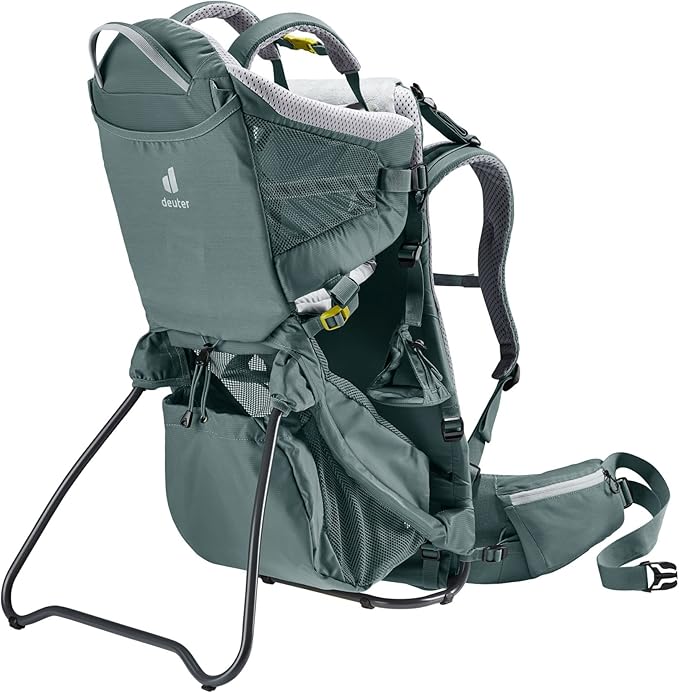
Table of Contents
- Why Back Pain is a Common Issue Among Parents
- What to Look for in a Baby Carrier for Back Pain
- Types of Baby Carriers That Minimize Back Pain
- Top 10 Baby Carriers for Back Pain in 2024
- How to Properly Use a Baby Carrier to Avoid Back Pain
- Final Thoughts on Choosing a Baby Carrier for Back Pain
1. Why Back Pain is a Common Issue Among Parents
Back pain is a common issue among parents, particularly those with young children. Carrying a baby for extended periods without proper support can place a lot of strain on the lower back, shoulders, and neck. Let’s break down the main reasons why back pain is so prevalent among new parents:
1. Posture Changes
Holding your baby on your hip or in your arms often leads to poor posture. You might lean forward or to one side, putting uneven pressure on your spine, which can lead to discomfort or even injury over time.
2. Unbalanced Weight Distribution
When you carry your baby without proper ergonomic support, the weight isn’t evenly distributed across your body. This imbalance can cause one side of your body to work harder than the other, straining muscles in your back and shoulders.
3. Lack of Core Engagement
Many parents unconsciously avoid engaging their core muscles when carrying their baby. This puts extra pressure on the lower back muscles, leading to fatigue and pain.
4. Extended Carrying Periods
For some parents, especially those who spend a lot of time walking or hiking with their baby, carrying the child for long durations without appropriate support can exacerbate existing back issues or cause new pain.
The right baby carrier can address these issues by promoting better posture, distributing weight evenly, and ensuring that your body works in harmony.
2. What to Look for in a Baby Carrier for Back Pain
When choosing a baby carrier that will help alleviate or prevent back pain, there are several key features you should prioritize:
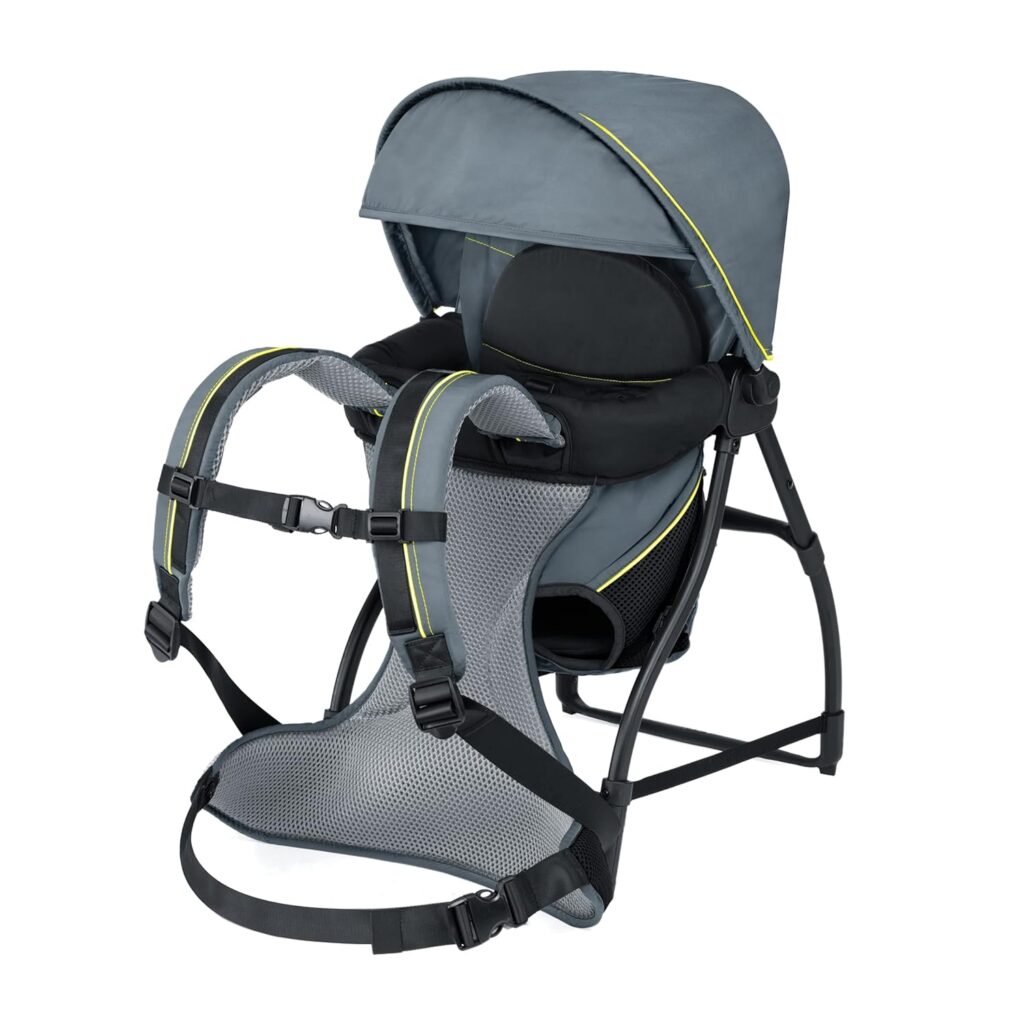
1. Ergonomic Design
An ergonomic carrier is designed to distribute the baby’s weight evenly across your body, reducing pressure on your back and shoulders. Look for carriers that have lumbar support, padded waist belts, and adjustable straps to ensure that your body is properly aligned.
2. Supportive Waist Belt
A sturdy and padded waist belt is one of the most important features for reducing back strain. This helps to distribute the baby’s weight to your hips, rather than your back, providing much-needed support to your lower body.
3. Padded Shoulder Straps
Padded, adjustable shoulder straps can help reduce pressure on your shoulders, which is crucial for avoiding neck and upper back pain. Ensure that the straps are easy to adjust for a snug and comfortable fit.
4. Adjustability
Back pain can be exacerbated if a carrier doesn’t fit well. Look for carriers that offer a high level of adjustability so you can customize the fit based on your body size and shape. This ensures the baby is close to your center of gravity, which minimizes strain.
5. Multiple Carry Positions
A carrier that offers multiple carrying positions, such as front, back, and hip, can help alleviate pressure on your back by allowing you to switch positions throughout the day. This variation can prevent repetitive strain on the same muscles.
6. Lumbar Support
Some carriers come with built-in lumbar support, which is essential for parents with chronic back pain. This feature offers additional cushioning and support to the lower back, helping to maintain proper posture.
3. Types of Baby Carriers That Minimize Back Pain
Different types of baby carriers offer varying levels of support, so it’s important to choose the right type based on your needs. Here are the main types of carriers and how they cater to parents with back pain:
1. Soft-Structured Carriers (SSC)
These carriers are popular for their padded straps, waist belts, and ergonomic designs. They typically offer the most back support, making them a great option for parents with back pain.
2. Wrap Carriers
Wrap carriers are long pieces of fabric that you tie around your body to create a secure hold for your baby. While wraps can offer comfort and closeness, they may not provide as much support as structured carriers, especially for older babies or parents with pre-existing back issues.
3. Mei Tai Carriers
A Mei Tai carrier is a hybrid between a wrap and a structured carrier. It offers more support than a wrap but still allows for some flexibility in how you carry your baby. However, it may not have the same level of lumbar support as an SSC.
4. Ring Slings
Ring slings are simple to use and convenient, but they may not offer enough support for parents with back pain. The single-shoulder design can cause uneven weight distribution, which may worsen back problems over time.
5. Backpack Carriers
These carriers are designed for longer hikes or walks and often come with built-in lumbar support, making them ideal for outdoor-loving parents. The sturdy frame helps distribute the baby’s weight across your hips and back, reducing strain on your muscles.
4. Top 10 Baby Carriers for Back Pain in 2024
Here’s our curated list of the best baby carriers for parents with back pain, based on comfort, support, and ease of use.
1. Ergobaby Omni 360
The Ergobaby Omni 360 is a standout choice for parents with back pain, offering excellent lumbar support, padded shoulder straps, and multiple carry positions. The structured design ensures weight is distributed evenly, reducing strain on your back.
- Key Features:
- Lumbar support.
- Multiple carry positions (front, back, and hip).
- Suitable for newborns and toddlers (7-45 lbs).
- Breathable mesh fabric.
- Pros:
- Excellent back support.
- Versatile and easy to adjust.
- Machine washable.
- Cons:
- Slightly bulky for petite users.
2. Lillebaby Complete All Seasons
The Lillebaby Complete All Seasons offers six different carrying positions and exceptional lumbar support, making it perfect for parents who suffer from back pain. The adjustable straps and padded waistband help alleviate strain, while the breathable mesh ensures comfort in warmer weather.
- Key Features:
- Six carry positions.
- Lumbar support for back pain relief.
- Adjustable seat width for growing babies.
- Breathable and lightweight design.
- Pros:
- All-season design.
- Great back support.
- Versatile and adjustable for different wearers.
- Cons:
- The learning curve for adjusting the settings.
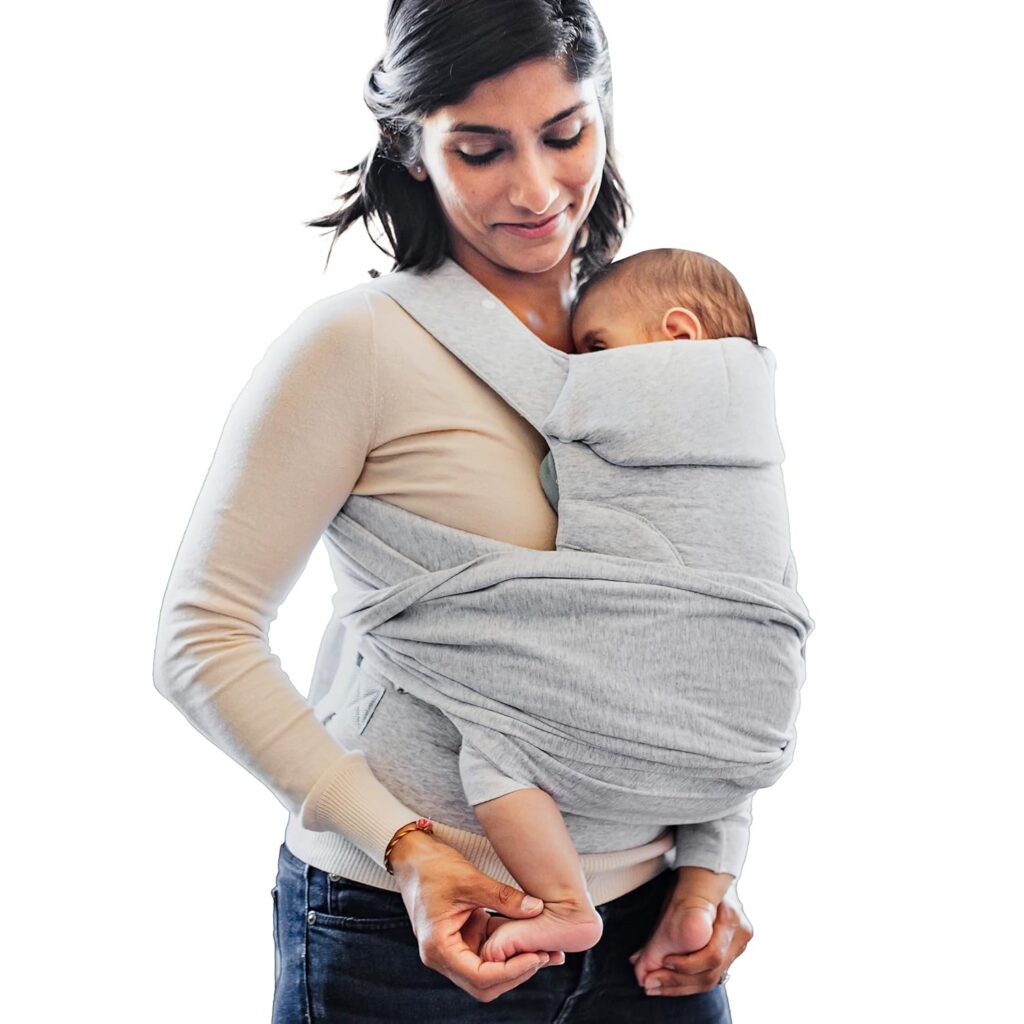
3. Tula Free-to-Grow Baby Carrier
The Tula Free-to-Grow is a minimalist but supportive carrier that allows you to adjust the width of the seat as your baby grows. It offers excellent lumbar support and is designed to promote proper spinal alignment, which is crucial for back pain sufferers.
- Key Features:
- Adjustable width settings.
- Lumbar support.
- Multiple carry positions (front and back).
- Pros:
- Easy to use.
- Great back support with simple adjustments.
- Cons:
- Fewer carry positions compared to competitors.
4. BabyBjörn Baby Carrier One
The BabyBjörn Baby Carrier One is well-known for its ergonomic design and comfortable fit. Its wide, padded shoulder straps and waistband help distribute the baby’s weight evenly, reducing strain on your lower back.
- Key Features:
- Four carry positions.
- Wide, padded straps.
- Ergonomic hip-healthy design.
- Pros:
- Comfortable for long-term use.
- Easy to put on and adjust.
- Cons:
- Limited adjustability compared to other models.
5. Beco Gemini Baby Carrier
The Beco Gemini is a versatile carrier that’s easy on the back thanks to its padded shoulder straps and wide waistband. It also offers multiple carrying positions and an ergonomic design that promotes proper posture.
- Key Features:
- Multiple carry positions (front, back, and hip).
- Adjustable straps and waistband.
- Compact design.
- Pros:
- Great for petite users.
- Excellent back support.
- Cons:
- The fabric may be too warm for hot climates.
6. Boba 4G Carrier
The Boba 4G Carrier is known for its simplicity and back-friendly design. With its thick waistband and padded straps, it provides optimal support for parents with back pain. It’s also suitable for babies and toddlers up to 45 pounds.
- Key Features:
- Thick waistband for back support.
- Multiple carry positions.
- Ergonomic design.
- Pros:
- Great back support.
- Suitable for extended wear.
- Cons:
- Lacks a front-facing carry option.
7. Moby Wrap Evolution
The Moby Wrap is made of soft, stretchy fabric that distributes the baby’s weight evenly, reducing pressure on your back. While it doesn’t offer the same level of lumbar support as structured carriers, it can still be a good choice for parents who prefer a wrap style.
- Key Features:
- Soft, breathable fabric.
- Wrap design for customized fit.
- Pros:
- Affordable.
- Comfortable for both parent and baby.
- Cons:
- Learning curve for wrapping.
8. Onya Baby Outback
The Onya Baby Outback is designed for active parents who love hiking. It features a durable, breathable mesh fabric and a structured seat that offers lumbar support, making it perfect for long walks or hikes.
- Key Features:
- Built-in lumbar support.
- Breathable, durable design.
- Suitable for outdoor activities.
- Pros:
- Great for hiking and long walks.
- Lumbar support minimizes back strain.
- Cons:
- Bulky for daily use.
9. Deuter Kid Comfort Pro
The Deuter Kid Comfort Pro is a backpack-style carrier designed for serious outdoor use. Its frame helps distribute the child’s weight evenly across your back and hips, making it ideal for parents who experience back pain during long hikes.
- Key Features:
- Adjustable seat and harness.
- Padded shoulder straps and lumbar support.
- Sturdy frame for even weight distribution.
- Pros:
- Perfect for hiking and long walks.
- Superior back support.
- Cons:
- Heavier than other carriers.
10. Infantino Flip Advanced 4-in-1 Carrier
The Infantino Flip Advanced is a budget-friendly option that doesn’t compromise on back support. Its padded straps and adjustable waistband offer decent support for the price, making it a good choice for parents on a budget.
- Key Features:
- Adjustable for multiple carry positions.
- Padded straps and waistband.
- Pros:
- Affordable.
- Comfortable for short-term use.
- Cons:
- May not provide enough support for longer wear.
5. How to Properly Use a Baby Carrier to Avoid Back Pain
No matter how ergonomically designed a carrier is, improper use can still lead to discomfort. Here are some tips on how to use your baby carrier in a way that minimizes back pain:
- Ensure a Proper Fit: Adjust the straps and waistband to ensure the baby carrier fits snugly but comfortably. The baby should be close to your body, with their weight evenly distributed.
- Engage Your Core: Keep your core muscles engaged when carrying your baby to avoid relying too much on your lower back.
- Switch Positions: If your baby carrier allows for multiple carry positions, switch between them regularly to avoid putting too much strain on any one part of your body.
- Take Breaks: Carrying your baby for extended periods can strain your back, even with the best carrier. Take regular breaks and alternate between carrying your baby and using a stroller when possible.
6. Final Thoughts on Choosing a Baby Carrier for Back Pain
Choosing the right baby carrier is a personal decision, but it’s even more critical for parents dealing with back pain. A good carrier can make a world of difference in your comfort and mobility, allowing you to enjoy those precious moments with your baby without compromising your health.
Focus on features like lumbar support, padded straps, and adjustable settings to ensure you’re getting the best possible fit. Whether you’re a new parent or have been carrying your baby for months, there’s a carrier out there that will help you manage or avoid back pain.
By investing in the right baby carrier, you can prioritize your health while staying close and connected with your little one.

